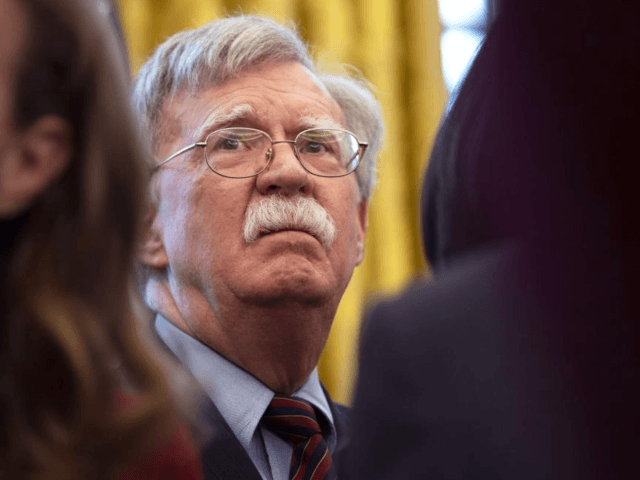The Chinese government reacted with fury on Tuesday to news that U.S. National Security Advisor John Bolton recently met with Taiwanese National Security Council Secretary-General David Lee, the first meeting between top American and Taiwanese security officials in 40 years.
Taiwan’s Ministry of Foreign Affairs confirmed on Sunday that Bolton met with Lee during Lee’s visit to the United States between May 13 and 21.
“During the trip, together with US government officials, secretary general Lee met with representatives from our diplomatic allies, reiterating support and commitment to a free and open Indo-Pacific region,” the Taiwanese government stated.
Security officials at the level of Bolton and Lee have not met since the United States ended formal diplomatic relations with Taiwan’s Republic of China in 1979. U.S. support for Taiwan has grown stronger during the trade war with China, while China has labored to isolate and weaken Taiwan ever since the election of current President Tsai Ing-wen.
“China is extremely dissatisfied and resolutely opposed to this,” Chinese Foreign Ministry spokesman Lu Kang said on Monday of the Bolton-Lee meeting.
Lu said China “deplored and strongly objected” to the meeting and demanded the United States to cease having “official exchanges or upgrading substantive relations with Taiwan.”
“The ‘One China’ principle is the political basis for China-U.S. relations. We are firmly against the U.S. engaging in any official contact with Taiwan in whatever form and under whatever pretext,” he said.
The “One China” principle envisions Taiwan as a renegade province of China whose autonomy is uneasily and temporarily tolerated by Beijing. The Chinese government frequently threatens to use military force against the island if Taiwan declares full independence.
CNN speculated on Tuesday that China’s ire was also piqued by Taiwan renaming the Coordination Council for North American Affairs, its unofficial embassy in Washington, to the “Taiwan Council for U.S. Affairs.” This made it the first Taiwanese governmental organization to include both “Taiwan” and “U.S.” in its name. The mainland Chinese government is very sensitive to such symbolism.
Lu said the Chinese government is also upset by Bolton’s description of David Lee as one of the “counterparts” he met with in May, arguing that since the U.S. pledged to maintain only unofficial contacts with Taiwan, Lee cannot be regarded as the White House National Security Advisor’s “counterpart.”
Other factors in the tense U.S.-Taiwan-China relationship include the massive Taiwanese military drill currently in progress, the increased tempo of American freedom of navigation patrols through the Strait of Taiwan, Taiwan’s request to purchase more American military hardware to defend itself, and U.S. legislation supporting Taiwan.

COMMENTS
Please let us know if you're having issues with commenting.